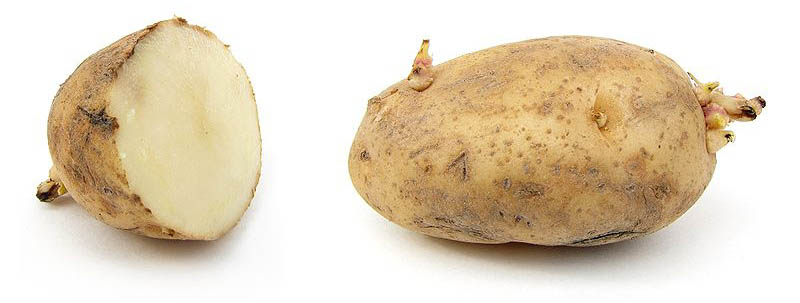
See also NPR's piece on the potato debate.
Conflicts abound in Congress, but this one takes the cake, or should I say the potatoes?
White potatoes are not currently an allowed food in the Special Supplemental Nutrition Program for Women, Infants, and Children (WIC). The potato industry has taken issue with this. Their lobbyists consider this discrimination and have been pushing Congress to require that the white potato become a WIC food. The WIC community, public health, and anti-hunger organizations are pushing back and oppose these efforts for reasons of science.
The fight escalated last Thursday as some members of the House Appropriations Committee donned science lab coats and offered an amendment allowing states the option to include potatoes. Innocuous on its face, the amendment demonstrates the lengths to which the potato industry will go in pushing state WIC programs to include potatoes. State WIC program directors will now be placed in the cross-hairs of the potato lobby, as they press directors to include potatoes in their states’ food packages. WIC programs then will become the public face of defiance against the IOM-recommended food packages, rather than Congress. This amendment compromises the integrity and effectiveness of a program grounded in nutrition science.
WIC is a federally-funded nutrition program designed to influence lifetime nutrition and health behaviors in a population of low-income mothers and young children with or at risk for developing nutrition-related health issues. Good nutrition, breastfeeding support, and referrals to health care and social services are the cornerstones of WIC.
A rigorous scientific review process determines which healthy foods are included in the WIC food package. From 2003-2005, the Institute of Medicine (IOM) reviewed the then current WIC foods, food choices, consumption patterns, and published information on nutrition-related health outcomes, among other parameters. They offered their recommendations for changes in a 2005 report, which included:
In 2007, the United States Department of Agriculture (USDA), the federal agency responsible for administering WIC, published proposed regulations on new WIC foods that mirrored the IOM’s recommendations. In 2009, an interim rule implemented the changes. A further review of the foods in the food package will be initiated in the coming fiscal year.
Since WIC was founded nearly 40 years ago, Congress has left the science to the scientists and has never interfered with selecting which foods the WIC Program should provide. For WIC advocates, “potatoes” are not the real issue, here. The real issue is that the potato industry and some members of Congress are attempting to circumvent the scientific review process.
If Congress sends a signal that determining WIC foods is at their discretion, undermining the scientific review process, the door will fly open for other, potentially unhealthy foods, to be forced into the WIC food package. As the quality of the food package is diminished, so too will WIC’s effectiveness be challenged in reducing nutrition-related health issues.
Potato industry lobbyists make arguments, in addition to the discrimination claim, that there is new science on the nutritional value of potatoes and that WIC clients should not be denied an inexpensive and healthy food option. Members of Congress and the American public should not be fooled!
If the potato industry and Congress really are interested in helping WIC mothers and young children improve their nutritional status with limited resources, they should leave science to the scientists and focus instead on insuring that WIC is fully funded to serve all eligible mothers and young children, that there is adequate funding to support breastfeeding peer counselors to help mothers initiate and improve breastfeeding duration for the sake of their infants’ health, and fund implementation of electronic benefit transfer (EBT) to speed and improve WIC customer transactions in the retail store and assure program integrity.
Americans, by a three to one margin in a 2012 released public opinion poll, support the WIC mission. Since the program’s inception in 1974, WIC has consistently and successfully improved health outcomes in the population it serves. Members of Congress should leave the science of the WIC food package to the nutrition science professionals.
Tell Congress to stop meddling in the science of the WIC food package!
Photo credit: Zoofari